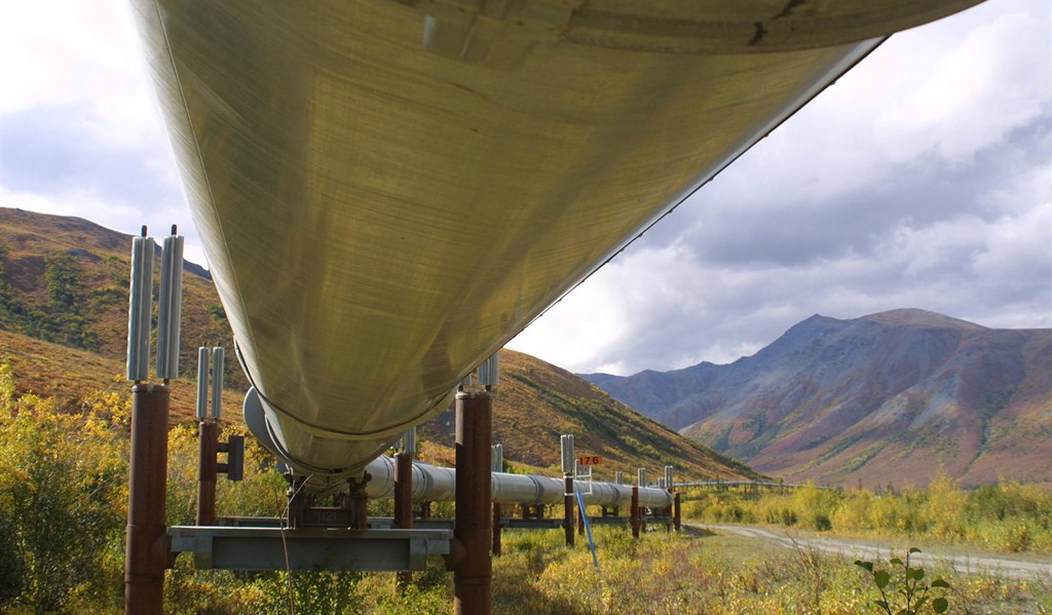In a ruling handed down last week, a Federal District Judge voided Trump-era permits for the Willow Project, a large oil development proposed in the National Petroleum Reserve – Alaska (NPR-A).
In a written ruling, U.S. District Court Judge Sharon Gleason of the District of Alaska said the environmental impact statement for Willow should have included a quantitative estimate of emissions resulting from oil consumption or it should have explained why the estimate could not be produced. [Source.]
In a 110-page ruling, Judge Gleason, an Obama appointee, sided with plaintiffs including Native groups and environmental organizations, who also objected to the project’s potential impacts on caribou and polar bears.
“Make no mistake, today’s ruling from a federal judge trying to shelve a major oil project on American soil does one thing: outsources production to dictatorships and terrorist organizations,” said Alaska’s Republican Gov. Mike Dunleavy.
“We are giving America over to our enemies piece by piece,” he said. “The Willow project would power America with 160,000 b/d, provide thousands of family-supporting jobs, and greatly benefit the people of Alaska.”
Judge Gleason’s ruling is the latest salvo in a series of Biden-era assaults on domestic oil and gas production.
ConocoPhillips’ fact sheet (pdf link) details the economic value at stake:
The $4 billion to $6 billion in invested capital for the project could create more than 2,000 construction jobs and 300 permanent jobs and put more flow into the Trans-Alaska Pipeline. The U.S. Bureau of Land Management (BLM) estimates that Willow could generate more than $10 billion dollars in federal, state, and North Slope Borough revenue.
ConocoPhillips’ resource estimate for the project is 450 million to 800 million barrels, which would make it the largest development on the North Slope since the late ’90s. It is important to keep oil moving through the Trans-Alaska Pipeline System (TAPS) to keep it above its minimum operating limit; opponents of development are fully aware of this, and denying volume to TAPS is a key part of their strategy. If the pipeline were to be shut down, any remaining oil on the North Slope would be “stranded.”
Per ConocoPhillips’ plan, oil would have begun to flow in 2026.
ConocoPhillips is the largest operator on the North Slope and the largest leaseholder in the NPR-A with over 1.1 million acres. It has two existing projects adjacent to Willow that are already producing. They know how to operate in the North Slope’s sensitive environment.
Judge Gleason rejected the permits citing an inadequate Environmental Impact Statement (EIS).
- The EIS failed to estimate the greenhouse gas emissions from downstream use of the oil. A specious objection, at best. Development of the Willow Project will have zero impact on oil consumption in the U.S. The same amount of oil will be consumed either way, so the net greenhouse impact of the project is zero. Maybe less than zero, if you consider domestic oil must be replaced with imported oil.
- The project fails adequately to protect wildlife. Opponents of the Trans-Alaska Pipeline (including a first-term senator from Delaware, Joe Biden) fretted about the caribou nearly fifty years ago. They were wrong; the caribou are doing fine, thanks for asking. ConocoPhillips and the other operators have learned a lot about dealing with the unique challenges the North Slope presents. Modern technologies like extended-reach and horizontal drilling enable many wells to share a single well pad (like an offshore platform), keeping the actual surface “footprint” of the project to an absolute minimum.
Our modern industrial lifestyles demand energy. There is no source of energy, including wind and solar, which has zero environmental impact. The environmental Left is aggressively obsessed with shutting down all fossil fuels (and nukes, too, while they’re at it), economic costs and consumer consequences be damned.
Since the TAPS pipeline began operations in 1977, Alaska’s North Slope has been an important source of energy for the U.S. To date, the region has produced 18.5 billion barrels, at times accounting for nearly a quarter of domestic oil production. We need to keep the North Slope viable and the TAPS operating efficiently. Judge Gleason’s decision to nix the project is a bad one, not just for the workers and citizens of North Slope Borough and Alaska, but for all Americans as well.












Join the conversation as a VIP Member